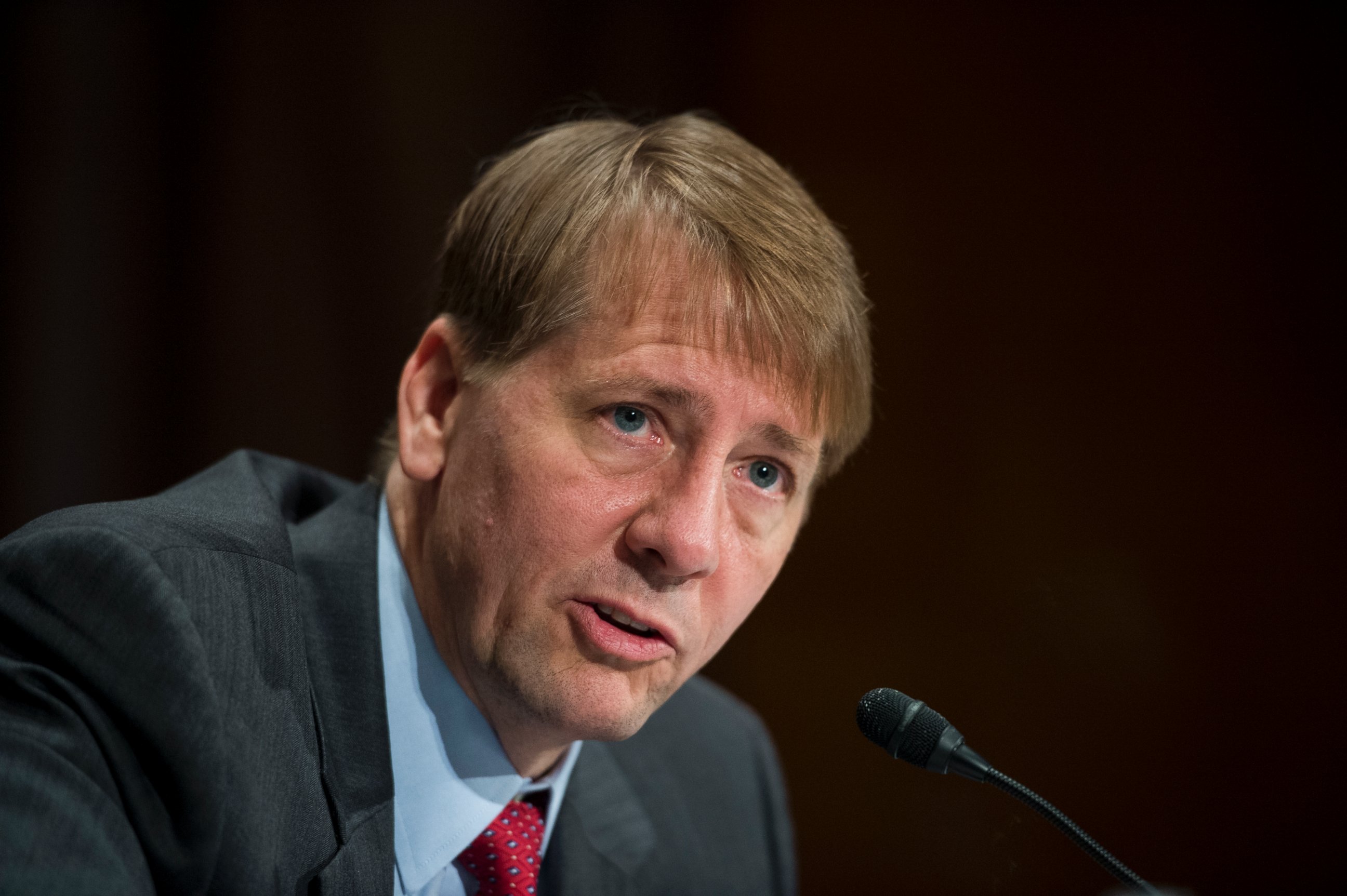Obama and Trump officials tangle over financial watchdog
The deputy director of the CFPB sued the Trump administration Sunday.
— -- The deputy director of the Consumer Financial Protection Bureau sued the Trump administration on Sunday night in an effort to stop the president’s pick from taking control of the watchdog agency.
Leandra English, who was named interim director by Director Richard Cordray before his final day at the CFPB last week, filed the suit against President Donald Trump and White House budget director Mick Mulvaney, whom Trump named interim director on Saturday.
Cordray, appointed by President Barack Obama, resigned from his post on Friday and promoted English, his chief of staff, to lead the CFPB as deputy director.
The dual appointments have created confusion over who is in charge of the agency, which was established under the Obama administration to protect consumers against predatory banking practices.
English is seeking a declaratory judgment and a temporary restraining order to block Mulvaney’s appointment, citing the Dodd-Frank Act, the legislation that established the CFPB after the 2008 financial crisis.

“Ms. English has a clear legal entitlement to the position of acting director of the CFPB,” the lawsuit says. “The president’s purported or intended appointment of defendant Mulvaney as Acting Director of the CFPB is unlawful.“
“The president’s use of the Federal Vacancies Reform Act to appoint an acting director of the CFPB would be an obvious contravention of Congress’s statutory scheme,” the suit adds.
The Dodd-Frank Act mandates that the deputy director “shall ... serve as the acting director in the absence or unavailability of the director,” according to the suit, but the White House argues that the Vacancies Act, which generally allows the president to make appointments on an interim basis, allows Trump to override the Dodd-Frank mandate.
White House spokeswoman Sarah Huckabee Sanders acknowledged the suit in a statement on Sunday.
“The administration is aware of the suit filed this evening by deputy director English. However the law is clear: Director Mulvaney is the acting director of the CFPB,” the statement said. “Director Mulvaney will bring a more serious and professional approach to running the CFPB.”
Mulvaney, a former Republican member of the House from South Carolina, has been a harsh critic of the CFPB. He is widely expected to overhaul the watchdog agency if he takes charge.
On Saturday, Trump wrote on Twitter that the CFPB “has been a total disaster as run by the previous Administrations pick” and promised to “bring it back to life!”
The White House elaborated on its defense of the nomination, referring to the support of the Justice Department’s legal counsel office.




